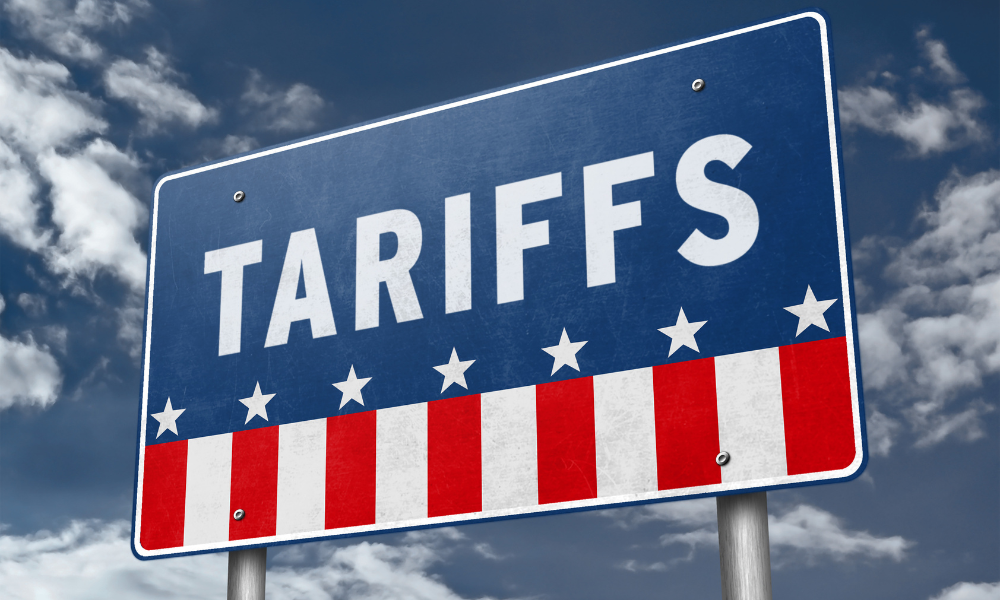Largest CPI deceleration in almost three years

Both inflation and underlying price pressures eased broadly in line with forecasts, bolstering the Bank of Canada’s case for holding interest rates steady despite healthy job gains.
The consumer price index rose 5.2% in February from a year ago, Statistics Canada reported Tuesday in Ottawa. That’s slower than the 5.4% gain expected in a Bloomberg survey of economists and down from 5.9% in January, making it the largest deceleration in headline inflation since April 2020.
On a monthly basis, the index rose 0.4% in February, versus expectations of a 0.5% gain.
Two key yearly measures tracked closely by the central bank — the so-called trim and median core rates — also dropped, averaging 4.85% from 5.05% a month earlier, in line with economist expectations. Service inflation held steady at 5.3% in February.
A three-month moving average of the two measures that policymakers have flagged as key to their thinking fell to an annualized pace of 3.5%, from 3.7% previously, according to Bloomberg calculations.
The figures confirm inflation is steadily coming off the boil, reaffirming the Bank of Canada’s decision to pause its tightening campaign even as the economy proves largely resilient after rapid increases to borrowing costs.
Two weeks ago, Governor Tiff Macklem and his officials kept borrowing costs unchanged for the first time in nine meetings. They’re closely watching economic developments, including inflation and jobs data, to assess whether their 425 basis points of rate increases to 4.5% over the past year is enough to cool the economy and restore price stability.
“The Bank of Canada is in a less awkward position than many others during the recent financial turmoil. That is, there’s really no underlying reason for the bank to hike further,” Douglas Porter, chief economist at Bank of Montreal, said in a report to investors. “Overall, the bank’s pause looks prudent.”
Cut priced in
Tuesday’s report is one of the key releases before the next decision on April 12, and came after jobs data earlier this month showed strong gains in employment and wage growth, signaling unexpected resilience at the start of 2023. The bank expects headline inflation to fall to 3% by midyear.
Concerns that financial-sector turmoil could tip the global economy into a recession, however, are complicating policymakers’ plans to stay on the sidelines as they assess the lagged effects of their hikes. Traders in overnight swaps markets are now betting that the Bank of Canada will have to cut rates at some point in coming months.
While the yearly deceleration in February was partly due to a base-year effect, food, shelter and transportation posted slower price gains than in January.
In February, energy prices fell 0.6% from a year ago, with gasoline prices down 4.7% in the first yearly drop since the start of 2021. On a monthly basis, Canadian drivers paid 1% less for gasoline last month amid higher crude oil inventory levels within the US.
Shelter costs rose at a slower yearly pace for the third straight month, up 6.1%. The deceleration of subcomponents that reflect a general cooling of the housing market helped offset a large increase in mortgage interest costs, which jumped 23.9%, the fastest pace since July 1982.
Food purchased from stores rose 10.6% from a year ago, the seventh consecutive month of double-digit increases. Price growth for non-alcoholic beverages, meat, vegetables and bakery products slowed, while prices for fruit juices, cereal, fish and seafood accelerated.
Prices rose at a slower pace in February compared with January in all provinces, except British Columbia, where they were unchanged, with lower energy prices offset by higher prices for rent.
Rent, one of the main upward contributors to inflation last month, rose 5.4% from a year ago, with tenants in British Columbia facing an 8.1% increase.



